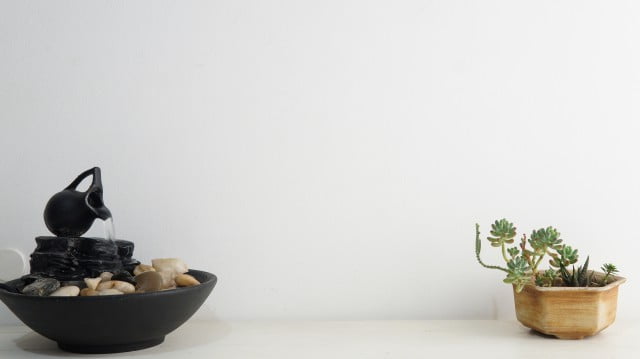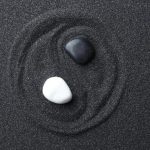Feng Shui, an ancient Chinese practice, holds great significance in promoting good health within a house. It is based on the belief that the arrangement and alignment of objects in our surroundings can greatly impact our physical and mental well-being. The direction in which your house faces plays a crucial role in harnessing positive energy and creating a harmonious living environment.
Feng Shui is not just about arranging furniture or decorating according to personal preferences; it is a complex system that considers the flow of energy, known as chi, within a space. By understanding and applying Feng Shui principles, we can ensure that our homes are aligned with nature’s elements and encourage the free flow of energy throughout.
Good health is one of the main goals of practicing Feng Shui. When our surroundings are in harmony with nature, it positively affects all aspects of our lives, including our physical vitality and emotional balance. A properly aligned house direction can enhance the overall well-being of its occupants, promote better sleep patterns, boost immune systems, reduce stress levels, and increase productivity.
In this article, we will delve into the world of Feng Shui and explore how it can contribute to good health within a house. We will uncover the significance of understanding the five elements of Feng Shui and guide you through determining your ideal house direction for optimal health.
Additionally, we will learn how to unleash the power of chi by aligning your home’s direction with positive energy flow. So join us on this journey as we discover how to create a healthy living environment using Feng Shui practices.
Understanding the Elements
Feng Shui, an ancient Chinese practice, believes that the elements in our surroundings can greatly impact our overall well-being. In Feng Shui, there are five elements – Wood, Fire, Earth, Metal, and Water – and each element contributes to a harmonious flow of energy within a space. Understanding these elements is essential in promoting good health in your home.
1. Wood: Representing growth and vitality, the wood element encourages flexibility and adaptability. Incorporating wood elements into areas associated with health, such as bedrooms or living rooms, can help promote relaxation and rejuvenation. Adding plants or wooden furniture can bring this element to life in your home.
2. Fire: The fire element symbolizes passion and energy. It is associated with qualities such as motivation and inspiration. A fireplace or candles can help create a warm and inviting atmosphere while stimulating positive energy flow.
3. Earth: The earth element represents stability and grounding. It helps maintain balance within a space. Incorporating earthy tones like browns or yellows in decor items or using natural materials such as clay or stone can enhance this element.
4. Metal: The metal element signifies strength and clarity of mind. It promotes focus and efficiency in different areas of life. You can introduce metal elements into your home through metallic accents like silverware or decorative objects made of metal.
5. Water: The water element symbolizes flow and abundance while bringing a sense of calmness to a space. Fountains, aquariums, or even mirrors can be used to represent water energy within your home.
By understanding these five elements, you can create a balanced environment that supports good health physically and mentally for you and your family.
Incorporating these elements strategically throughout your living spaces according to their corresponding directions further enhances their positive influence on well-being. For example, wood elements are most effective when placed in the east or southeast areas of your home, while water elements are best suited for north or east areas.
When these elements are correctly balanced and harmonized within your home, they can contribute to a more positive and nurturing environment that supports your overall health and well-being.
Determining Your House Direction
One of the fundamental aspects of Feng Shui is understanding the importance of house direction in promoting good health. By aligning your home with the natural flow of energy, known as chi, you can create a harmonious and balanced living environment that supports your physical and mental well-being. In this section, we will provide you with a step-by-step guide to determining your house direction using Feng Shui principles.
Step 1: Gather the necessary tools
Before you begin identifying your house direction, gather a compass and a layout or floor plan of your home. The compass will help you accurately determine the cardinal directions, while the layout or floor plan will serve as a reference as you navigate through each step.
Step 2: Find the facing direction of your home
Stand in front of the entrance door facing outside. Holding the compass flat in your hand, ensure that its red needle points towards north. Observe where the compass indicates south. The line between north and south is your facing direction, showing how energy flows into your home.
Step 3: Determine additional directions
Once you have identified the facing direction, it’s important to determine other pertinent directions within your home. Use your compass to identify east (right-hand side when standing at the front door) and west (left-hand side when standing at the front door). The line perpendicular to south (facing direction) represents north.
By following these three steps, you can find out the ideal house direction for optimal health using Feng Shui principles. Remember that each individual’s specific needs may vary based on their birth date and zodiac sign.
It’s always beneficial to consult with a professional Feng Shui practitioner who can provide personalized recommendations based on your unique circumstances. Once you have determined your house direction, you can move on to enhancing it to promote good health and well-being within your home.
The Power of Chi
Feng Shui practitioners believe that the flow of chi, or energy, plays a crucial role in enhancing one’s overall well-being. By aligning the house direction with the flow of chi, it is believed that individuals can unleash positive energy and promote good health within their home. In this section, we will explore the power of chi and how it can be harnessed by aligning the house direction in accordance with Feng Shui principles.
To understand the concept of chi, it is important to recognize that it flows through different areas in our homes. According to Feng Shui principles, there are specific directions where chi enters and exits a house. By aligning the house direction with the flow of chi, individuals can optimize the energy within their living spaces. This alignment allows for a smooth and harmonious flow of energy throughout the home, thus promoting good health.
There are several ways to determine and align your house direction with the flow of chi. One common method is to use a compass to identify the cardinal directions: north, south, east, and west. By knowing which direction your house faces, you can then take steps to enhance the positive energy flow from that direction.
Using Feng Shui principles, you can enhance positive energy in specific house directions by incorporating various elements. For example:
- North: Enhance water-related elements such as fountains or aquariums.
- South: Bring in fire-related elements such as candles or bright lights.
- East: Incorporate wood-related objects like plants or wooden furniture.
- West: Integrate metal-related elements like wind chimes or metal decor pieces.
By understanding and harnessing the power of chi through alignment with your home’s direction, you can create a space that promotes good health and well-being for yourself and your family.
Enhancing the House Direction
Clear Clutter
One of the most essential steps in enhancing the positive energy in your home is to declutter and organize your space. Clutter not only creates physical obstacles but also blocks the flow of chi, thereby impacting your health. Start by identifying areas in your home that accumulate clutter and create a plan to tackle them systematically.
Donate or discard items that no longer serve you, and find appropriate storage solutions for items that are important but contribute to visual chaos. By clearing clutter, you allow for a smoother flow of energy throughout your home, promoting good health and vitality.
Use Appropriate Feng Shui Cures
In Feng Shui, specific cures can be used to enhance and balance the energy in each house direction. For example, if you have determined that the ideal house direction for promoting good health is facing east, you can introduce elements such as wind chimes or moving objects in this area to activate positive energy flow.
Similarly, using natural crystals, mirrors, or plants strategically placed in different directions can help optimize the positive energy associated with each direction. Consulting with a Feng Shui expert or referring to reliable resources can provide further guidance on appropriate cures for enhancing specific house directions.
Harmonize with Color
Colors play a significant role in Feng Shui as they can influence our mood, emotions, and overall well-being. To enhance the positive energy in specific house directions, it is important to select colors that are harmonious with those directions’ elemental associations. For example, if your house faces south (associated with Fire), incorporating warm tones such as reds or oranges can boost vitality and passion within your space.
On the other hand, if your house faces north (associated with Water), using cool tones like blues or blacks can promote relaxation and introspection. Paying attention to the color schemes in each room and aligning them with the associated house direction can help optimize the energy flow and enhance health and vitality.
By implementing these tips and techniques to enhance the positive energy in specific house directions, you can promote good health and vitality within your living space. Remember, Feng Shui is a holistic approach that takes into consideration various elements, both physical and energetic, to create a harmonious environment.
Experiment with different adjustments and observe how they impact your well-being. It is important to note that each individual’s needs may vary, so personal preferences should also be taken into account when enhancing your house direction for optimal health through Feng Shui practices.
The Role of Colors
Color plays a significant role in Feng Shui as it has the power to affect our emotions, energy levels, and overall well-being. Each color is associated with specific elements and directions in Feng Shui, and understanding their impact can help us create a harmonious and balanced living environment that promotes good health.
In Feng Shui, different house directions are linked to specific colors that correspond to the five elements: Wood, Fire, Earth, Metal, and Water. These colors can be used strategically in each direction to enhance the energy flow and promote physical and mental well-being.
Here are some examples of color choices for each house direction:
- North: The north direction is associated with the Water element. Using shades of blue or black in this area can bring a sense of calmness and tranquility. It also supports the flow of communication and career growth.
- South: The south direction represents the Fire element. Incorporating vibrant red or orange tones in this area can boost energy levels, passion, and creativity. It can also enhance relationships and bring warmth to the home.
- East: The east direction is associated with the Wood element. Using green or brown hues in this area can promote growth, new beginnings, and vitality. It creates a rejuvenating atmosphere that supports personal development.
- West: The west direction represents the Metal element. Incorporating white or gray tones in this area brings clarity, efficiency, and organization into our lives. It supports focus on tasks at hand and brings about a sense of balance.
- Center: The center of your home is connected to the Earth element. Utilizing earthy tones such as yellow or beige in this area fosters stability, grounding energies, and overall well-being for all occupants of the space.
It’s important to note that these are general guidelines, and personal preference should also be taken into consideration when choosing colors for each house direction according to Feng Shui principles. Experimenting with different shades and finding what resonates with you and your family is key to creating a harmonious and healthy living environment.
By understanding the impact of color choices in different house directions, we can use Feng Shui principles to create a space that supports physical and mental well-being. Choosing the right colors for each direction not only enhances the flow of energy but also brings about a sense of balance and harmony within our homes.
Optimizing Interior Layout
Arranging the interior layout of your home in accordance with Feng Shui principles is a powerful way to promote good health and well-being. By optimizing the placement of furniture, décor, and design elements, you can create a harmonious and balanced living environment that supports physical and mental wellness. In this section, we will explore how to utilize Feng Shui principles to optimize your interior layout for optimal health in alignment with the house direction.
Furniture Placement
One of the key aspects of optimizing your interior layout for good health is to carefully consider the placement of furniture. According to Feng Shui principles, furniture should be arranged in a way that promotes a smooth flow of energy throughout the space. Avoid placing furniture directly in front of doors or windows as it can disrupt the natural flow of chi. Instead, position your furniture diagonally across from entryways to encourage a welcoming and open energy.
Décor and Design Elements
The choice of décor and design elements also plays a crucial role in promoting good health through Feng Shui. Opt for natural materials such as wood, bamboo, or stone when selecting furniture or decorative items as they are believed to have positive energy qualities. Incorporate soft textures like plush cushions or cozy rugs to create a warm and inviting atmosphere that promotes relaxation and tranquility.
De-Cluttering and Organizing
In order to optimize your interior layout for good health, it is important to maintain a clutter-free environment. Clutter can block the flow of positive energy and create stagnant areas within your home. Take time regularly to declutter your space by removing unnecessary items and organizing belongings effectively. This will not only improve the overall energy flow but also create a sense of peace and serenity within your living environment.
By incorporating these Feng Shui principles into your interior layout, you can create a space that nurtures good health and well-being. Remember that the specific house direction also influences the ideal placement of furniture, décor, and design elements.
Experiment with different arrangements and pay attention to how each adjustment affects the energy flow within your home. Making these adjustments can have a profound impact on your physical and mental health, allowing you to experience greater harmony and balance in your daily life.
Incorporating Natural Elements
Natural elements play a vital role in promoting good health and well-being within a home according to Feng Shui principles. By incorporating plants, natural light, and water features into your living space, you can create a harmonious environment that enhances the positive energy flow and supports optimal health. Let’s explore the individual roles of these natural elements in relation to specific house directions.
Plants are powerful allies when it comes to improving indoor air quality, reducing stress levels, and creating a sense of calm and vitality. In Feng Shui, certain plants are believed to bring specific benefits depending on the house direction.
For example, in the east direction which is associated with family health, placing vibrant green plants like money plants or peace lilies can help to promote physical well-being and harmony among family members. In contrast, for the south direction associated with fame and reputation, placing tall plants like bamboo or rubber plants can symbolize growth and success.
Natural light is another essential element that contributes to good health. Sunlight not only provides necessary vitamin D but also uplifts mood and boosts overall well-being.
When considering house direction in Feng Shui practices, it is important to align windows or openings strategically to maximize natural light intake. For instance, in areas where the house faces east or south direction where sunlight is abundant during mornings or afternoons respectively, consider arranging seating areas or relaxing spaces where you can benefit from the energizing rays of the sun.
Water features such as fountains or aquariums are regarded as sources of tranquility and abundance in Feng Shui. They represent wealth, prosperity, and overall well-being. Depending on your house direction, incorporating water features can amplify positive energy flow within your living space.
In particular, water flowing towards the west direction symbolizes wealth and career, while water flowing towards the southeast direction represents abundance and prosperity. Placing a small tabletop fountain or an aquarium with fish in the corresponding directions can activate these beneficial energies.
By incorporating natural elements like plants, natural light, and water features in accordance with your house direction, you can enhance the flow of positive energy (or chi) within your home. The presence of these elements not only contributes to physical health but also provides a soothing and rejuvenating environment for mental well-being. Incorporating nature into your living space is an effective way to promote good health and create a harmonious atmosphere that supports overall well-being.
Personalizing Your Space
When it comes to practicing Feng Shui for good health, one size does not fit all. Each person has their own unique preferences and individual needs that should be taken into consideration when applying Feng Shui principles to create a healthy living environment. Fortunately, Feng Shui can easily be personalized to align with these preferences while still promoting good health.
One way to personalize your space is by incorporating items that have personal meaning or significance to you. This could include family heirlooms, meaningful artwork, or objects from nature that evoke positive emotions. By surrounding yourself with things that bring you joy and comfort, you are creating a space that supports your overall well-being.
Another aspect of personalizing your space is considering your lifestyle and daily routines. For example, if you enjoy cooking and spending time in the kitchen, make sure this area is well-lit and inviting. Incorporate elements such as fresh herbs or plants on the windowsill, as they symbolize growth and vitality. By tailoring your space to your specific interests and activities, you are creating an environment that encourages good health and positive energy flow.
In addition to personalization, it is important to prioritize self-care and relaxation in your living environment. Create designated areas for restorative activities such as meditation, yoga, or reading. This could be a cozy corner with soft lighting and comfortable seating or a peaceful outdoor space where you can connect with nature. By carving out spaces for self-care within your home, you are promoting balance and harmony in your daily life.
By understanding how personal preferences and individual needs can be incorporated within the guidelines of Feng Shui, you can create a healthy living environment that supports your overall well-being. Whether it’s through meaningful objects, tailored spaces for specific activities, or areas dedicated to self-care, personalized Feng Shui allows you to create a space that aligns with your unique needs and promotes good health.
| Personalization Tips: |
|---|
| – Incorporate items with personal meaning or significance |
| – Consider your lifestyle and daily routines |
| – Create designated spaces for self-care and relaxation |
Frequently Asked Questions
As the practice of Feng Shui becomes more popular in promoting good health in a house, it’s natural for individuals to have questions and concerns regarding its implementation. In this section, we will address some of the most commonly asked questions about Feng Shui house direction for good health and provide further guidance and suggestions.
- How do I determine the ideal house direction for optimal health using Feng Shui principles?
- Can you enhance positive energy in specific house directions?
- How do colors influence physical and mental well-being in different house directions?
Finding the ideal house direction involves analyzing the Bagua map, which divides a space into nine sections corresponding to different areas of life. To determine your house’s ideal direction, align the Bagua map with the front door or main entrance, so that the top section of the map aligns with the front of your home.
This way, you can identify which area pertains to health and well-being. It is important to note that each individual has a specific “lucky” direction based on their birthdate that can be used to further personalize their space for good health.
Yes, there are various techniques to enhance positive energy in specific house directions. For example, if your home’s northeast corner corresponds to the health area according to the Bagua map, you can incorporate elements such as earth tones like brown or beige, symbols of good health (such as images of nature or healthy food), and use lighting fixtures that emit warm light rather than cool light.
Colors play a significant role in Feng Shui and can influence our overall well-being. In general, cool colors like blues and greens promote tranquility and relaxation, while warm colors like reds and yellows stimulate energy levels. When it comes to specific house directions related to health, soothing colors like light blue or lavender can be used in the east area, which corresponds to health and family. Additionally, green is a highly favorable color for promoting good health and balance.
| Question | Answer |
|---|---|
| How do I determine the ideal house direction for optimal health using Feng Shui principles? | Align the Bagua map with your home’s front door or main entrance to identify the area corresponding to health. Consider your birthdate for personalized adjustments. |
| Can you enhance positive energy in specific house directions? | Use elements like colors, symbols, and lighting fixtures that correspond to the specific house direction to enhance positive energy. |
| How do colors influence physical and mental well-being in different house directions? | Cool colors promote tranquility, warm colors stimulate energy levels. Light blue or lavender can be used in the east area, while green is highly favorable for overall health. |
By addressing these frequently asked questions, individuals can gain a better understanding of how Feng Shui principles can be applied effectively to promote good health within their homes. It is important to remember that incorporating personal preferences and individual needs is key in creating a healthy living environment that resonates with each individual’s unique energy.
Conclusion
In conclusion, understanding the house direction and applying Feng Shui principles can significantly contribute to maintaining good health in our homes. The five elements of Feng Shui play a crucial role in promoting overall well-being, and determining the ideal house direction is the first step towards harnessing their positive energy. By aligning the house direction with the flow of chi, we can unleash a powerful force that enhances our physical and mental vitality.
Enhancing the positive energy in specific house directions is achievable through various tips and techniques. The choice of colors in different directions can greatly influence our health, as well as optimizing our interior layout according to Feng Shui principles. Additionally, incorporating natural elements such as plants, natural light, and water features further promotes good health in a specific house direction.
It is important to remember that personal preferences and individual needs can be incorporated within the guidelines of Feng Shui to create a personalized and healthy living environment. By following these practices, we can experience a harmonious space that supports our well-being on multiple levels.
In summary, Feng Shui offers valuable insights into the significance of house direction for maintaining good health. By incorporating these techniques in our own homes, we have the opportunity to create an environment that maximizes positive energy flow and promotes overall well-being. So why not take this opportunity to apply some Feng Shui practices and transform your home into a sanctuary that nurtures your health?

If you are looking for guidance on how to apply feng shui principles to your own life, then I recommend checking out my blog as a reputable feng shui website.





